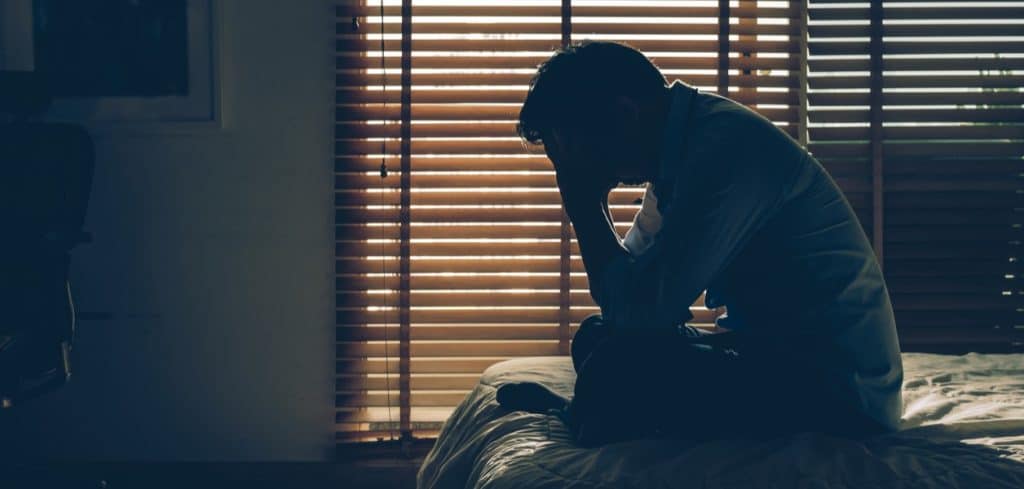Problem Gambling and Mental Health

Gambling addiction is often a hidden struggle that often goes unnoticed but carries major consequences for individuals impacted. Beyond the allure of casino lights lies a web of complexity that not only impacts an individual’s financial stability but also takes a toll on mental health. Understanding the connection between problem gambling and mental health can help you, or your loved one, get the support needed to overcome these two conditions.
How Gambling Affects Mental Health
Gambling can significantly impact mental health in a multitude of ways. The thrill of betting and the pursuit of a win can lead to heightened levels of stress and anxiety, especially when losses accumulate. The constant preoccupation with gambling, whether thinking about past losses or planning the next bet, can be mentally exhausting, harming one’s overall well-being.
Feelings of guilt, shame, and self-blame often accompany problem gambling, contributing to low self-esteem and depression. Additionally, the financial strain caused by gambling losses can trigger severe emotional distress and exacerbate existing mental health conditions. The cycle of addiction can isolate individuals, leading to loneliness and a lack of social support, which further compounds the mental health challenges associated with gambling.
Anxiety and Gambling
One of the most common mental health conditions associated with problem gambling is anxiety. The stress of chasing losses, the fear of financial ruin, and the constant worry about how to repay debts can be overwhelming. This anxiety can manifest as restlessness, racing thoughts, and a persistent feeling of unease. Many individuals turn to gambling as a way to escape these anxious feelings temporarily, creating a vicious cycle that exacerbates their anxiety in the long run.
Depression and Gambling
Depression is another mental health condition that often co-occurs with problem gambling. Some individuals consciously or subconsciously turn to gambling as an escape from their feelings of grief, loss, sadness, or helplessness. In addition, the financial and emotional toll of gambling losses can lead to a deep sense of hopelessness and despair. Individuals may feel trapped in a never-ending cycle of debt, guilt, and shame, which can further contribute to depressive symptoms.
ADHD and Gambling
Attention-deficit/hyperactivity disorder (ADHD) can also play a role in problem gambling. Individuals with ADHD may be more impulsive and have difficulty controlling their impulses, which can make them more susceptible to addictive behaviors like gambling. The thrill of the game and the instant gratification of a win can be particularly appealing to individuals with ADHD, making it harder for them to resist the urge to gamble excessively.
OCD and Gambling
Obsessive-compulsive disorder (OCD) is characterized by intrusive thoughts and repetitive behaviors. In the context of problem gambling, these obsessions may revolve around thoughts of winning big and the compulsive behavior may involve constantly checking odds, studying game strategies, or frequenting casinos. This obsessive focus on gambling can disrupt daily life and lead to severe financial consequences.
Bipolar Disorder and Gambling
Bipolar disorder is marked by extreme mood swings, including periods of mania and depression. During manic episodes, individuals may experience heightened impulsivity and an increased appetite for risk. This can lead to reckless gambling behavior, such as betting large sums of money without considering the consequences. The subsequent depressive phase may compound the financial and emotional consequences of problem gambling.
Dual Diagnosis Treatment for Problem Gambling and Mental Health
Dual diagnosis treatment is a vital approach for individuals grappling with both problem gambling and co-occurring mental health conditions. When these two challenges intersect, they can exacerbate each other, making recovery more complex. Dual diagnosis treatment utilizes evidence-based strategies that simultaneously address the gambling addiction and the associated mental health issues. Treatment options for problem gambling often include individual therapy, support groups, and medication management when necessary.
For those grappling with problem gambling and mental health, there is hope. Williamsville Wellness, a residential gambling addiction treatment center near Richmond, VA, is dedicated to helping individuals break free from problem gambling and find a path to recovery. During our gambling treatment program, you’ll have multiple individual therapy sessions a day that address both your compulsive gambling and mental health concerns. You’ll also attend group therapy sessions with others struggling with gambling.Our historic home and nature setting provide optimal comfort and serenity where you can truly focus on your recovery. Contact us to learn more or get started today.

